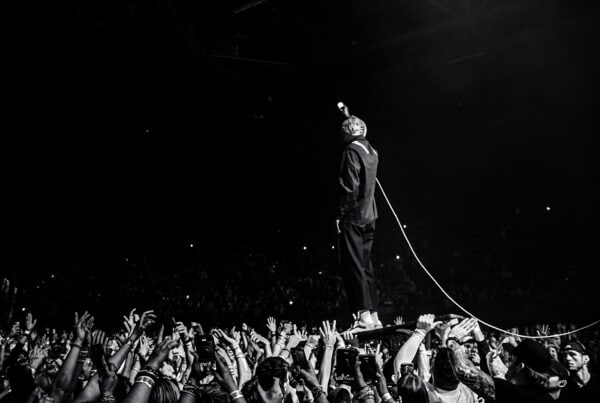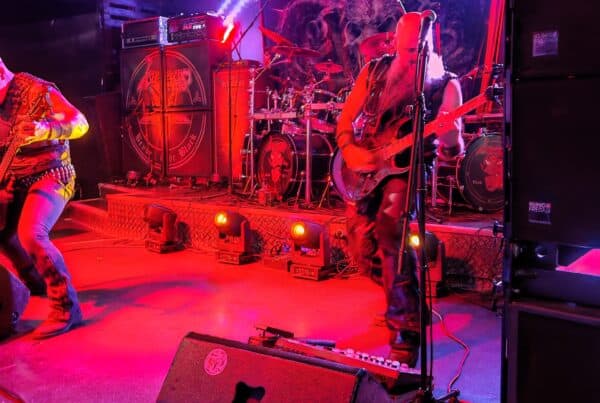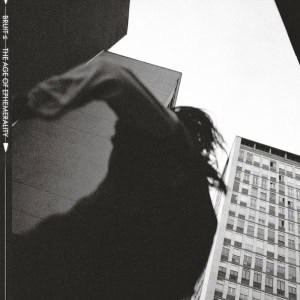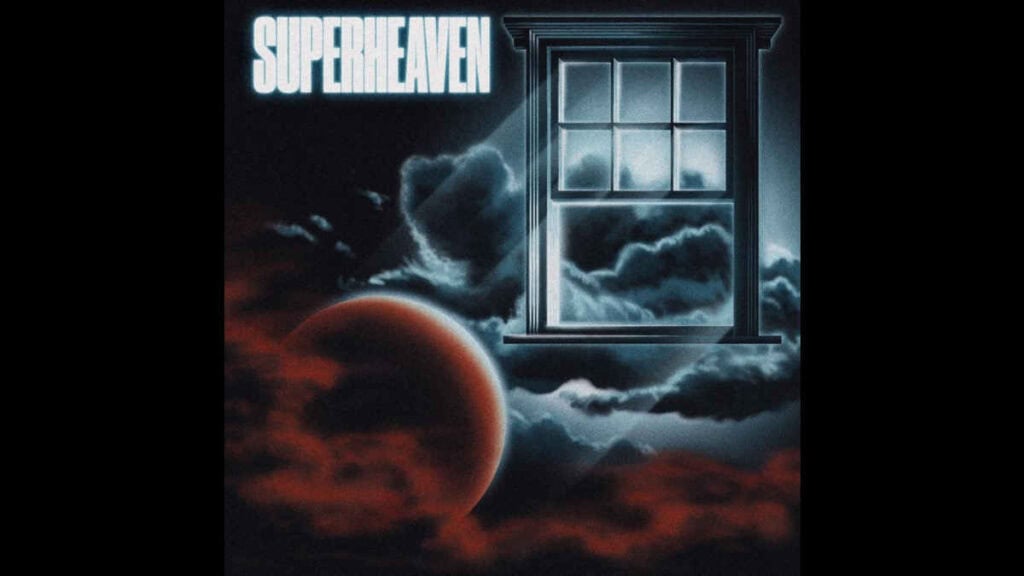Pale Waves are a band of aesthetics: since their first single, ‘There’s A Honey’, was a hit spun like gossamer, we became the flies caught in their web, drawn in by their ice cream-headache-sweet instrumentals.
[like_to_read][/like_to_read]
They’re our sad pop darlings: the yin-yang china doll appearance of frontwoman Heather Baron-Gracie and drummer Ciara Doran, with their black and white tangle of curls, hollowed, chalk-white cheeks and sunken eyes, prime them as deities for the ‘other’ crowd. Their success has been a flash before their eyes. Seemingly out of nowhere, since being signed to Dirty Hit, where The 1975 are the greatest star in their solar system, they have been propelled to trans-Atlantic success, throwing the kind of weight you’d expect three or four albums deep – not three or four singles. Their debut album, ‘My Mind Makes Noises’ is, at last, ours: the final statement on just who Pale Waves are – and above all – what they’re capable of.
Pale Waves’ path to critical approval has been littered with fox traps, where stuffy indie veterans are biting at their ankles for striving for a place in the Top 40 rather than sulking outside of it. Pale Waves are a pop band – that is exactly what they want to be. It would be impossible to criticise a band who bleed honey, glittering guitarwork and lovesickness and truly mean it. Let it be said: what they do, they do incredibly well. Baron-Gracie’s vocals have a way of swooping in pitch in the same vein as The Cranberries’ Dolores O’Riordan, yet there is a petulance to them, a puppy-like whimper in her tone that makes her sound like she “likes crying in her room for something to do”. Their lyrics are the tear-stained outpourings in a teenage girl’s diary, excessive in the way she whines, “Oh no, baby are we gonna make it this time? I always take hearts that shouldn’t be mine, be mine” in ‘Red’. It’s sickly. Fixated with being a teenager, and the bottled angst that comes with it, Pale Waves open the track with ‘Eighteen’. It seems that they are entrenched in a world that, realistically, they should have outgrown. Their music is bankrupt of any maturity, full of the phases, falling-outs and falling-ins of adolescence; the molehills that make mountains large enough to fill an album.

It will come as little surprise to most that The 1975’s frontman Matty Healy co-produced ‘My Mind Makes Noises’. His influence is the anatomy of this album; the skeleton holding this synth-pop superstructure is unmistakably The 1975. It is Pale Waves’ biggest draw, yet from a critical perspective, their biggest failing. The likes of ‘Loveless Girl’ smacks of their fellow Manchester quartet: an ambient intro, humming basslines, and the clicking of fingers punctuating synth twinkles is the formula for a hit the baby-boomers can’t resist, as Healy clearly knows. The lines between The 1975 and Pale Waves blur horribly, to the point where truly credible songs are overshadowed by the similarities too great to overlook. It’s cross-contamination. It’s a shame, as Pale Waves’ aptitude for making irresistible pop hits is indomitable; say what you want, but you can’t say there’s not a part of you that loves their liquorice sweetness.
A conclusion often drawn from listening to Pale Waves is that once you’ve heard one, you’ve heard them all: this is almost true. Their pop songs bleed into each other, overlapping, until one is hardly distinguishable from the other. Quite frankly, they get annoying. A wealth of patience is a requirement if you’re going to listen to ‘My Mind Makes Noises’ from start to finish. When the chorus of ‘Television Romance’ kicks in, it’s impossible to not feel like you’re expecting the chorus of ‘There’s A Honey’; they’re interchangeable, which is a jarring and ultimately disappointing experience. This is the single, salient fault that makes it clear that ‘My Mind Makes Noises’ lags far behind our expectations. Where they excel isn’t enough to outweigh the amateur mistakes that are littered throughout. However, not every song is the same. Anchoring their soaring pop ambitions down to earth is the mellow ‘She’, expansive and nocturnal; and their final track ‘Karl (I Wonder What It’s Like to Die)’, an acoustic song with an unexpected poignancy and honesty of feeling that touches, for once, on a subject that carries gravitas.
Pale Waves have promise. They carry the raw talent that, providing it is used in the right way, will yield the staggering success on which they are on the precipice. Their teenage persona seems to have transferred into their music: they make teenage mistakes. It’s easy to forgive them for their weaknesses, but to do so would be to label them as amateurs – and amateurs they are not. Everything they need is in their arsenal. It seems, like every eighteen year old, that experience and confidence to broaden their horizons is the only thing holding them back.
![]()





